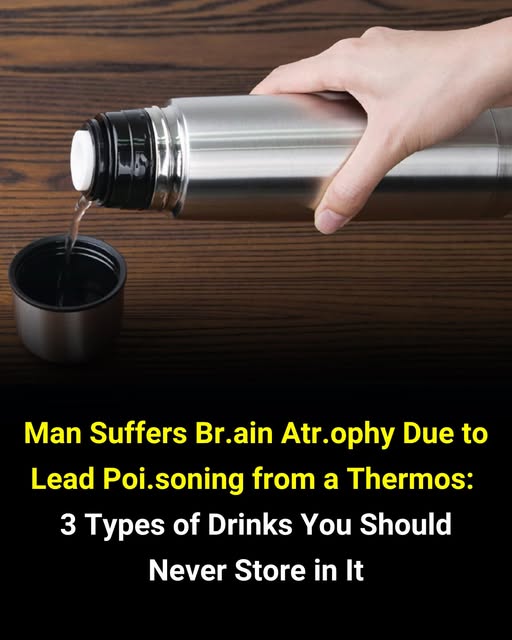A thermos is a trusty companion for keeping drinks hot or cold throughout the day — whether it’s your morning coffee, iced tea, or a soothing herbal infusion. But not all liquids are safe to store in a vacuum flask, especially over long periods.
While water seems harmless, not all types of water are suitable for thermos storage. Some can degrade the container, promote bacterial growth, or even become unsafe to drink.
Here are 3 types of water you should never store in a thermos — and why.1. Carbonated Water (Sparkling Water, Seltzer, or Club Soda)
Why it’s dangerous:
Carbonated water contains dissolved carbon dioxide (CO₂), which creates pressure as it bubbles. When sealed in an airtight thermos, this pressure can build up quickly.
Risks:
The thermos lid can pop off unexpectedly, causing a fizzy explosion.
In extreme cases, the vacuum seal can be damaged, reducing the flask’s insulation ability.
Glass-lined thermoses may even shatter from internal pressure.
Safe alternative:
If you want to carry sparkling water, use a sturdy, leak-proof bottle designed for carbonated drinks — not a standard vacuum flask.2. Tap Water Left for Hours in a Dirty or Uncleaned Thermos
Why it’s risky:
Plain tap water might seem safe, but if your thermos isn’t cleaned regularly, storing water in it can become a breeding ground for bacteria and mold.Over time, residual sugars, saliva, or old liquid can accumulate in hard-to-reach areas (like the lid or spout), turning your thermos into a microbial playground.
Bacterial growth (like E. coli or mold spores) — especially if you’ve previously stored sugary or dairy-based drinks.
Unpleasant odor and taste — a sure sign of microbial buildup.
Potential illness — especially for those with weakened immune systems.
How to stay safe:
Wash your thermos daily with warm, soapy water.
Use a bottle brush to clean the interior and lid.
Disinfect weekly with a vinegar or baking soda solution.
Note: Even plain water can become contaminated if the container isn’t hygienic.
SEE NEXT PAGE
ADVERTISEMENT

